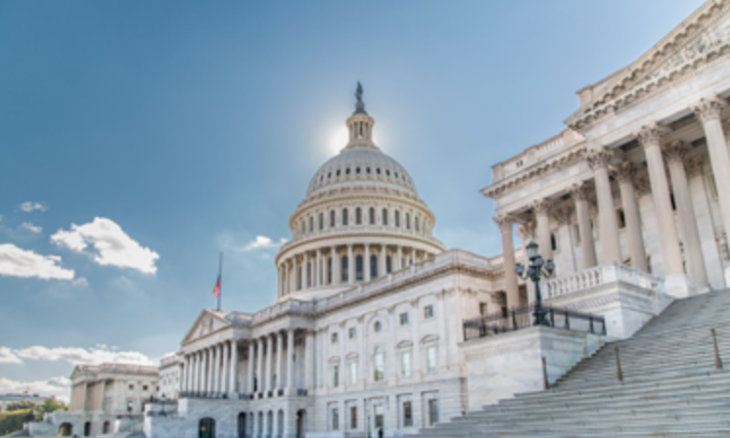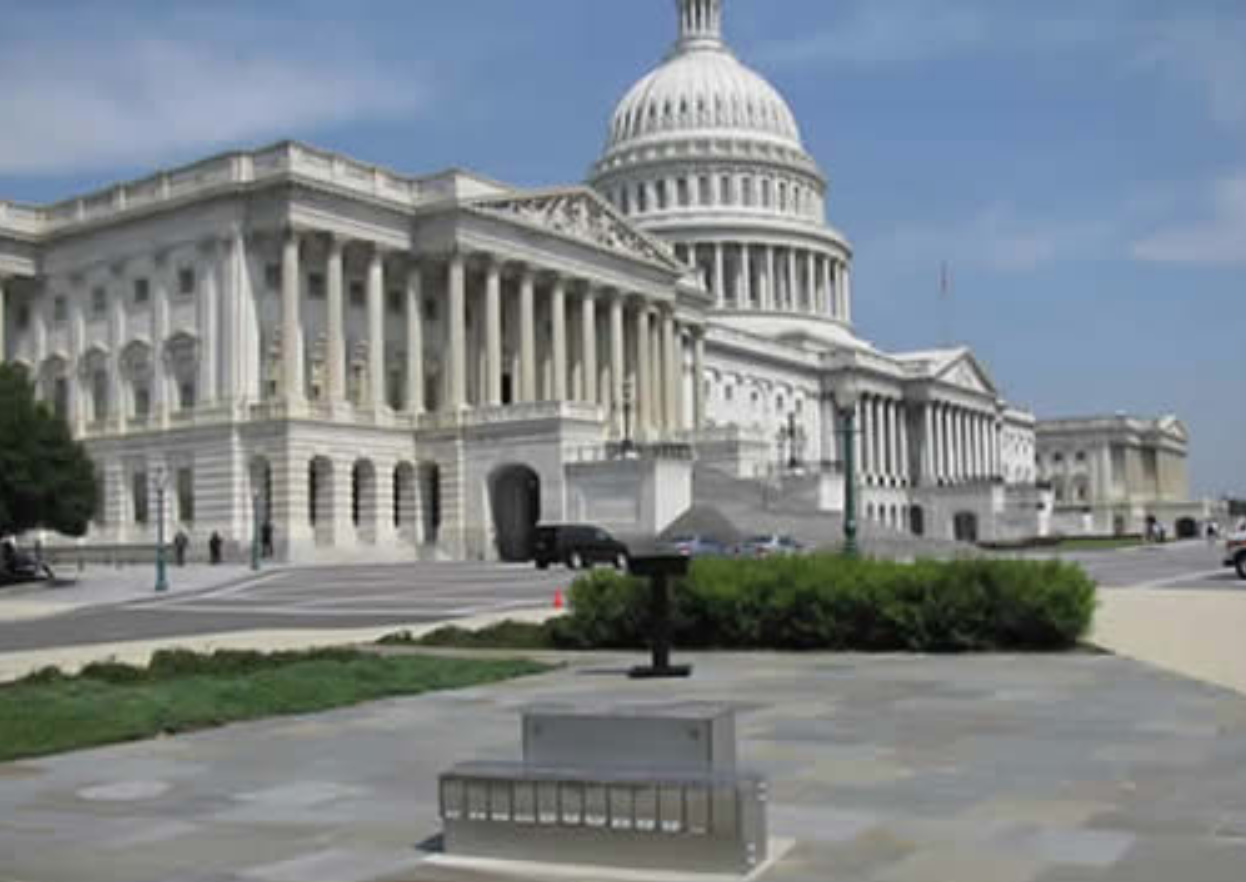Part 1 of 2: The source, structure, and accountability of government authority.
PRAY FIRST for God to guide public officials and give them humility, integrity, and wisdom. May that act in submission to His perfect and holy will.
Take away the wicked from the presence of the king, and his throne will be established in righteousness. Proverbs 25:5
In this two-part series, we will explore government authority, performance, and accountability. In part 1, we will look at the foundation and function of government.
There are many facets that go into running a nation. Like a business, it takes personnel, budgeting, planning, and many departments to manage a government. Have you ever wondered where government authority originated? The authority of the U.S. government originates in the Constitution, ratified in 1788. This foundational document outlines a system built on the principle that the government derives its power from the consent of the governed. Article VI affirms the Constitution as the “supreme Law of the Land,” establishing a national framework that defines the roles and responsibilities of federal and state institutions.
The Constitution establishes three branches: the legislative, executive, and judicial. Congress (legislative) writes the laws, the president and federal agencies (executive) enforce them, and the courts (judicial) interpret them. Each branch is designed to serve distinct functions while remaining interdependent. This separation of powers is meant to prevent tyranny and promote cooperation.
At the same time, decision-making in the U.S. isn’t limited to Washington, D.C. Authority is also shared with state and local governments. States retain significant power under the Tenth Amendment, managing areas like education, infrastructure, and law enforcement. Local governments serve even closer to the people—directly affecting community issues. This layered system can promote responsiveness, but it can also create conflict when jurisdictions overlap or disagree.
Understanding Government Performance
How do we know if the government is working? Performance is measured by both internal systems and public scrutiny. The Government Performance and Results Act (GPRA) of 1993 requires federal agencies to set measurable goals and report progress through annual performance reports (U.S. Government Accountability Office, 2022).
Tools like performance dashboards, audits, and independent evaluations help track efficiency, budget use, and public service delivery. Agencies like the Office of Management and Budget (OMB) and the GAO play key roles in this process.
When government programs are executed well, the citizens can feel it. The rollout of the Social Security program during the Great Depression provided immediate economic relief and long-term security for millions. More recently, efficient federal disaster response has saved lives and stabilized communities during hurricanes, fires, and public health crises.
Accountability
Government accountability means public officials must answer for their actions and decisions. This principle is essential in a representative democracy, where elected leaders serve on behalf of the people.
The media can play a critical role in maintaining accountability. Investigative journalism can uncover misuse of power and corruption. Citizens also have access to public records through the Freedom of Information Act (FOIA), which allows individuals to request information from federal agencies.
Several watchdog organizations exist to ensure ethical governance. The Office of Inspector General (OIG) operates within many agencies to investigate fraud, abuse, and inefficiency. The U.S. Office of Special Counsel protects whistleblowers who report misconduct.
Public Trust and Civic Engagement
Transparency builds trust. When the government communicates openly, people are more likely to believe that their leaders act in good faith. On the contrary, secrecy or deception undermines confidence and leads to public disengagement.
Historically, public trust has declined following events like the Watergate scandal or prolonged wars. In recent years, divisive rhetoric and inconsistent messaging have further eroded confidence in government. According to a 2023 report from Pew Research Center, just 20% of Americans said they trust the federal government to do what is right “just about always” or “most of the time” (Pew Research Center, 2023). This level of skepticism underscores the importance of ongoing public engagement and accountability.
Yet the opportunity for citizens to engage remains. Public comment periods, town halls, voting, and even social media platforms give Americans a voice. Government websites often include feedback tools, letting citizens express concerns directly to agencies.
Checks, Balances, and Oversight
Checks and balances are a central feature of U.S. governance. The Constitution prevents any one branch from accumulating too much power. Congress can investigate the executive branch, override vetoes, and approve appointments. The president can veto legislation and nominate judges. Courts can strike down laws or executive actions that are ruled to be unconstitutional.
Oversight is exercised through hearings, audits, and investigations. When misconduct arises, investigations are conducted by entities like congressional committees, the Department of Justice (DOJ), or independent counsels, ensuring that no office or individual is above the law.
Consequences of Inaction or Overreach
When government institutions fail to act—or act beyond their scope—the consequences are real. Inaction can mean delayed disaster relief, inadequate infrastructure, or exacerbate health crises. Overreach can lead to violations of civil liberties or misallocation of power.
Historical examples include the internment of Japanese Americans during World War II—later deemed a grave injustice, the FBI surveillance of civil rights leaders in the 1960s, which was later condemned by Congress, and more recent concerns over data privacy in national security programs. In these cases, course corrections were driven by public outcry and oversight mechanisms. When accountability systems are ignored or weakened, the legitimacy of the government suffers. Maintaining vigilance ensures that power remains in service to the people.
Why It Matters and How We Can Respond
This conversation is about more than structure; it’s about stewardship. We care about the government not because it is perfect, but because it touches the lives of others.
We are not called to blind allegiance nor to perpetual suspicion. Instead, we are encouraged to live as thoughtful citizens who remember that power is meant to serve, not control. Proverbs 31:8 urges us to “Open your mouth for the mute, for the rights of all who are destitute.” Our involvement should reflect clarity, humility, and a desire for truth, not fear or hostility. Accountability matters not just for fairness, but because people’s lives are shaped by the decisions made in public office. We can model this care in our local communities, by paying attention, asking thoughtful questions, and staying engaged even when it feels inconvenient. Trust is not built overnight, but it can be rebuilt through steady, responsible presence.
HOW THEN SHOULD WE PRAY:
— Pray for transparency in public affairs, that government actions would be made visible and understandable to those they affect. For nothing is hidden that will not be made manifest, nor is anything secret that will not be known and come to light. Luke 8:17
— Pray for God to stir the hearts of people to participate with care and clarity. Look carefully then how you walk, not as unwise but as wise, making the best use of the time. Ephesians 5:15–16
CONSIDER THESE ITEMS FOR PRAYER:
- Pray for all who are in authority to be honest and seek God’s truth in how they communicate with the public.
- Pray for journalists to put aside opinions and agendas to report the truth above all else.
- Pray for God to grant all Americans discernment in how we interact with those in authority.
- Pray for God to give a humble heart to local and national leaders so that they would be receptive to correction and input.
Sources: Congressional Budget Office, Government Accountability Office, National Archives, Pew Research Center, Financial Crisis Inquiry Commission, Fraser Reserve Bank of Trust St. Louis









